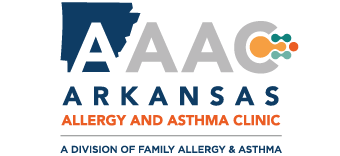Feast Without Fear: Food Allergies Explained

Analyzing ingredients. Questioning servers. Bringing your own food to parties. Life with food allergies can feel challenging, but remember that you’re not alone. These dietary limitations affect millions of people worldwide – around 6% of U.S. adults and children, to be exact. And like all allergies, knowledge is the key to comfort for a happy, healthy life. Arkansas Allergy And Asthma Clinic practices have local board-certified allergists nearby to help you in that process.
Understanding Food Allergies
Food allergies occur when the body misidentifies a harmless food protein as a threat, triggering the symptoms of an allergic reaction. While studies continue to uncover which cause reactions, there are currently more than 160 foods identified to trigger symptoms, with a core group responsible for the majority of food allergies.
The “Big Nine” Food Allergies
Of all food allergens, the “Big Nine” are more often than not the root of your food allergy symptoms. These infamous triggers include:
Sesame is the latest addition to this list, only officially recognized as a major allergen on Jan. 1, 2023. As a result, older products might not have this ingredient listed among the other major food allergens on their labeling.
Signs and Symptoms of Food Allergies
Food allergy symptoms can affect different parts of your body, with signs and symptoms varying from person to person. Reactions can appear within minutes to several hours after eating trigger foods. Common food allergy symptoms include:
- Hives or red, itchy skin
- Swelling of the lips, tongue or throat
- Stomach cramps, vomiting, or diarrhea
- Trouble breathing or difficulty swallowing
- Coughing, wheezing or shortness of breath
- Anaphylaxis
Among this list, anaphylaxis is the most severe. This rapid allergic reaction is a life-threatening combination of several concurrent symptoms – difficulty breathing, a drop in blood pressure, loss of consciousness, etc.
This reaction requires immediate treatment—usually an injection of epinephrine (like with an EpiPen) and a trip to the emergency room.
Diagnosing Food Allergies
Receiving an accurate food diagnosis is essential to finding relief, and our allergy specialists can help. You can aid in your accurate diagnosis by keeping a meal journal that also tracks the timing and type of symptoms that occur after eating.
Food allergy symptoms are often obvious. If symptoms recur, it is a strong sign that the food you’ve eaten beforehand is the cause. If allergies are suspected but there is no clear sign, an allergy and asthma specialist can conduct allergy skin testing to explore potential triggers for the true cause of symptoms.
How to Manage Food Allergies
While food allergies can feel daunting, your allergist can educate you on several management strategies and treatments available to help you lead a safe, healthy life:
Avoidance
The most effective way to manage food allergies is to avoid known allergens. This requires reading food labels carefully, being aware of potential cross-contamination, and communicating dietary restrictions when eating out.
Emergency Preparedness
Those with severe allergies should always carry an epinephrine auto-injector (like an EpiPen). This is the first line of defense in treating anaphylactic reactions before medical help is available.
Create an Allergy Action Plan
Developing a personalized allergy action plan with your allergist is crucial. This plan will detail how to avoid allergens, recognize symptoms of an allergic reaction, and respond appropriately in an emergency.
Education and Advocacy
Educating yourself, family, friends and caregivers about food allergies is vital. Advocating for a better understanding of food and accommodations for yourself or loved ones with food allergies can make life safer and more enjoyable for all.
Take a Bite Out of Allergy Symptoms
Don’t let fear of food allergies slow you down! Arkansas Allergy and Asthma Clinic’s trusted allergy specialists are always ready to guide patients toward relief. With locations across the region, allergy relief is always close to home. Contact us today to schedule your allergy appointment.
About Arkansas Allergy and Asthma Clinic (AAAC)
Arkansas Allergy and Asthma Clinic (AAAC) is affiliated with Family Allergy & Asthma, a network of board-certified allergy and asthma specialists dedicated to providing high-quality, reliable and lasting allergy relief. AAAC serves patients in communities throughout Central Arkansas at two convenient locations in Little Rock and Conway, Ark. AAAC is also on Facebook, Instagram and X. For more information, visit arallergy.com.
